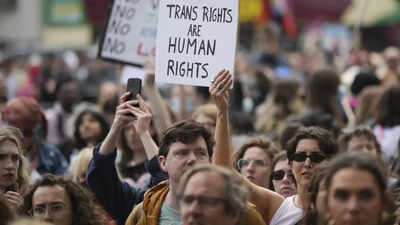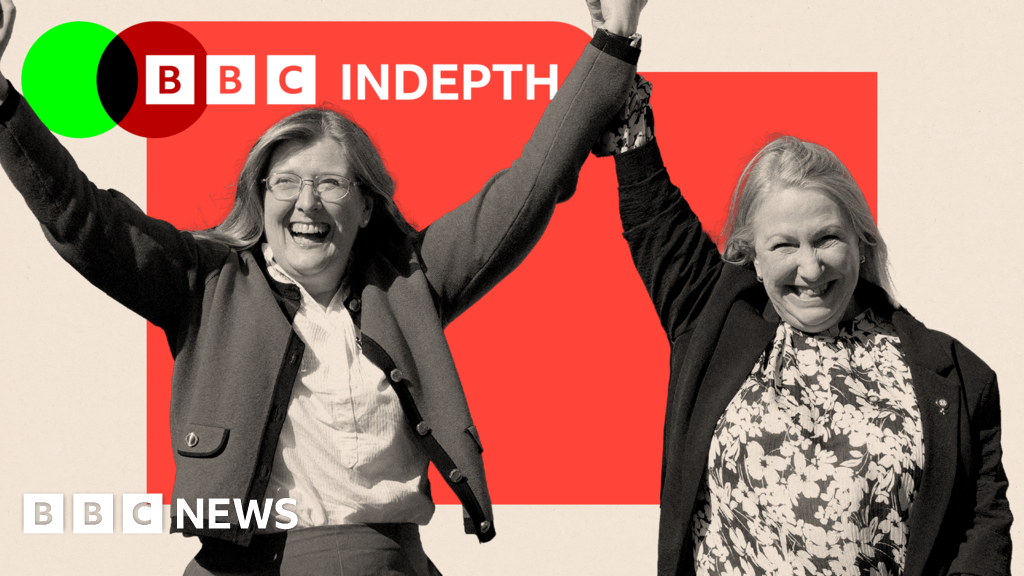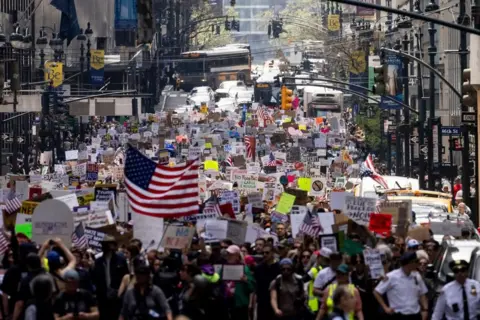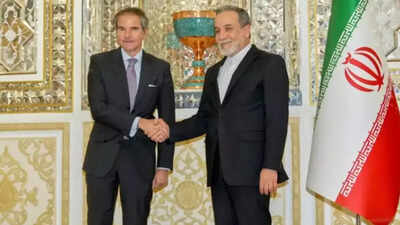Trump's Trade Policies Stir Worries of Economic Downturn

For several months now, former President Donald Trump has been privately expressing his concerns regarding a potential economic downturn reminiscent of the Great Depression, a catastrophic event he often refers to as 1929 during discussions with his advisors. This anxiety has taken on a new intensity in light of alarming developments over the past two weeks, which have particularly unsettled some of his closest advisors; among them is Treasury Secretary Scott Bessent. Recent events surrounding the global economy have led Trump to realize just how precarious the situation truly is, heightening fears of a financial crisis under his administration.
At the beginning of the month, Trump shocked financial markets with an unexpected announcement of historic tariffs aimed at nearly all of the United States' trading partners. This aggressive move marked a significant escalation in his ongoing trade war, sending shockwaves through the financial community. The stock market experienced a dramatic plunge as investors reacted to the uncertainty, while a sharp sell-off in U.S. government bonds and the dollar raised alarm bells, signaling a potential shift in the nations reputation as a bastion of financial stability.
As the implications of Trumps tariff policies began to unfold, Federal Reserve Chairman Jerome Powell voiced grave concerns, warning that such measures would likely lead to both increased inflation and slower economic growth. His remarks hinted that the threshold for the Federal Reserve to consider lowering interest rates would now be significantly elevated, especially following a series of cuts implemented the previous year aimed at stimulating the economy.
In a surprising turn of events, Trump later attempted to recalibrate his approach by pausing many of the tariffs for 90 days, attributing this decision to a queasy bond market that had begun to exhibit signs of distress. However, this reprieve was short-lived. In a swift reversal, Trump escalated tariffs on Chinese imports to an astonishing 145 percent, all while exempting several popular consumer electronics and announcing forthcoming trade agreements with other nations. This series of abrupt changes has left financial markets jittery and has done little to dispel Powell's worries regarding the broader economic landscape.
During a recent event held at the Economic Club of Chicago, Powell articulated the Federal Reserves responsibility to prevent a temporary spike in price levels from evolving into a persistent inflation issue. He reiterated his warnings about the potential for slower growth, emphasizing the Feds willingness to remain patient and refrain from any further adjustments to interest rates until there is greater clarity regarding the economic outlook.



























